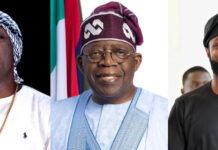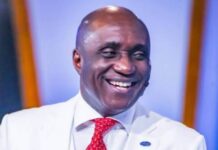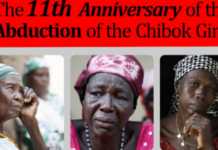5G subscriptions tick up to 500,000 but operators planning for more
By Jeph Ajobaju, Chief Copy Editor
Fifth Generation (5G) telecommunication ticked up to 500,000 subscriptions a year into its launch, Nigerian Communications Commission (NCC) Executive Vice Chairman Umar Danbatta has disclosed.
Nigeria launched 5G in August 2022, eight months after licences were issued to MTN, Airtel, and Mafab Communications in December 2021 through spectrum auction which fetched more than $820 million revenue for the treasury.
A new statement issued by NCC Public Affairs Director Reuben Mouka affirmed the Commission’s readiness to ensure more Nigerians have access to 5G technology.
The NCC had put 5G subscriptions at 60,000 as of July 2023.
Danbatta said the efforts of the NCC to improve broadband penetration are yielding results. He put the penetration estimate as of July at 47.01 per cent.
He stressed the target of 70 per cent broadband penetration by 2025 is receiving renewed attention from the NCC and expressed confidence 50 per cent will be achieved before the end of 2023.
He highlighted his achievements since assumption of office, citing 119 milestones achieved under the five strategic pillars – regulatory excellence, universal broadband, market development, digital economy, and strategic collaboration.
Danbatta said through the effective implementation of the NCC mandate and the cooperation of internal and external stakeholders since 2015, the telecom industry has achieved remarkable milestones.
“While we acknowledge the challenges encountered by the industry, we have also witnessed explosive growth, improved regulatory standards, and digital innovations that have garnered global recognition,” he reiterated.
He listed the achievements from 2015 to July 2023 to also include:
- Active telephone subscribers increased from less than 150.7 million to 218.9 million.
- Teledensity grew from 107.87 per cent to 115.70 per cent.
- Broadband penetration rose from 6 per cent to 47.01 per cent, enhancing over 89.73 million subscriptions on 3G, 4G and 5G networks.
- General internet subscriptions grew from less than 100 million to 159.5 million.
__________________________________________________________________
Related articles:
Electronic fraud is rising, NCC warns public
Rising costs compelling telcos to seek tariff review
Telcos cutting costs and jobs as naira devaluation bites hard
__________________________________________________________________
Achieving SDGs broadband target
Elsewhere, the Broadband Commission for Sustainable Development has called for a joint global effort to achieve universal and meaningful connectivity by 2030 at its yearly Fall Meeting at the United Nations headquarters in New York, per The Guardian.
The Commission said collaboration must ensure people around the world are not only connected but also have the skills and knowledge to use connectivity.
The Broadband Commission is a high-level public-private partnership fostering digital cooperation and developing actionable recommendations for achieving universal connectivity
It stressed accelerating universal and meaningful connectivity through partnership and cooperation is essential in order to achieve the UN Sustainable Development Goals (SDGs) by 2030.
“We need to build a digital future that is inclusive, affordable, sustainable, safe and people-centered,” Commission Co-Chair Carlos Slim said.
“There should be no digital deserts in the world, and there should be no one excluded from connectivity. People have the right to enjoy a safe, productive and affordable online experience. Broadband should enhance the quality of life of everyone.”
The Commission sought innovative investment models to bring together private and public stakeholders to deliver meaningful access and content to those most in need.
Rwandan President Paul Kagame, another Co-Chair of the Commission, was represented at the meeting by Paula Ingabire, Rwandan Minister of Information Communication Technology and Innovation.
Ingabire said: “As technology advances and 2.6 billion people remain unconnected, it’s crucial to prioritise universal and affordable broadband access, coupled with investments in digital skills, and the elements that truly define meaningful connectivity, such as inclusive and localised digital content, accessible hardware, cybersecurity measures, and policies that ensure digital inclusion for all.”
The International Telecommunication Union (ITU) recently announced 2.6 billion people across the world still lack access to the internet, down from estimated 2.7 billion in 2022, but leaving about one-third of the global population unconnected.
“Tech is racing ahead and billions of people are being left behind,” said ITU Secretary General Doreen Bogdan-Martin, Commission Co-Vice Chair.
“Our task is to invest in affordable broadband, digital skills, and everything that makes connectivity meaningful.”













